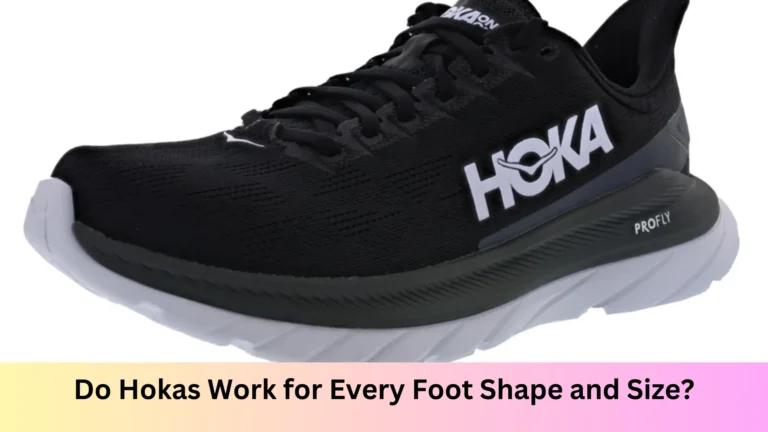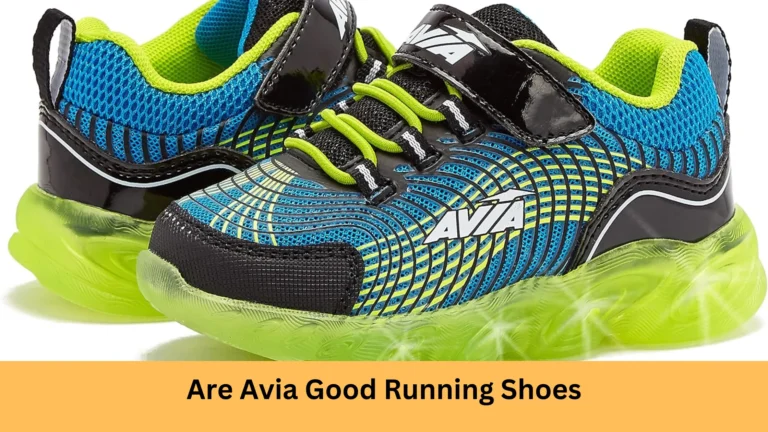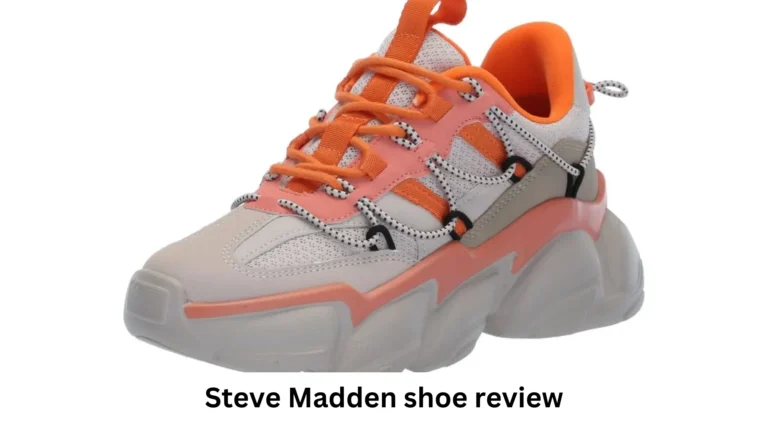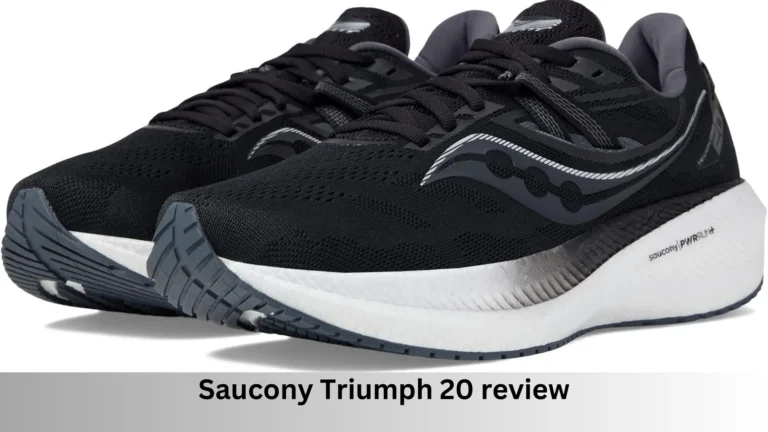
If you’re a runner or an outdoor enthusiast, you’ve probably wondered whether it’s okay to use trail running shoes on pavement. Trail shoes are designed to tackle rugged, uneven, and often muddy terrains, while road running shoes are built for flat, smooth surfaces like pavement.
But sometimes, you may find yourself wanting the extra support and traction of trail shoes, even when your route includes some paved sections. Is it a good idea, though? In this article, we’ll explore whether running on pavement in trail shoes is beneficial or detrimental, and we’ll help you make an informed decision on when to use trail shoes for road running.
Why Would You Consider Running on Pavement in Trail Shoes?
There are several reasons why someone might consider running on pavement in trail shoes:
- Mixed Terrain Routes: If your route combines trails and roads, it may be easier to stick to one pair of shoes.
- Enhanced Traction: Trail shoes provide more grip, which can be helpful on slippery pavement.
- Extra Stability: Many trail shoes have stiffer midsoles, offering stability on uneven terrain but also helping some runners feel more secure on hard surfaces.
Understanding when and why you might choose trail shoes over road shoes on pavement will guide you in making the best decision for your running experience.

Differences Between Trail Shoes and Road Running Shoes
Tread Design
- Trail Shoes: Have aggressive, lugged outsoles to handle mud, rocks, and loose ground.
- Road Shoes: Feature flatter, smoother outsoles optimized for flat surfaces like pavement.
Cushioning
- Trail Shoes: Typically have firmer midsoles to help prevent foot injuries on uneven surfaces.
- Road Shoes: Often offer more cushioning for comfort and impact absorption on hard pavement.
Stability
- Trail Shoes: Built for stability with a supportive design to prevent twists on rugged paths.
- Road Shoes: More flexible and lighter, allowing for easier strides on smoother surfaces.
Durability
- Trail Shoes: Made with tougher materials that resist tears from rough elements.
- Road Shoes: Tend to have softer rubber that grips better on pavement but may wear down on rocky terrain.
Advantages of Running on Pavement in Trail Shoes
Enhanced Grip
On slippery or wet pavement, the lugged soles of trail shoes can provide better traction than typical road shoes. This added grip can prevent slipping and may be helpful on days when conditions are wet or unpredictable.
Extra Protection and Stability
With thicker outsoles and stiffer midsoles, trail shoes offer excellent stability and support, which can be beneficial for runners who need extra arch or ankle support. Some runners find the support of trail shoes comforting on harder surfaces.
Durability on Rough Surfaces
Trail shoes are designed to withstand rough terrains, so if you frequently encounter rocky or broken pavement, they can last longer than road shoes in these conditions.
Read Also: Do Nine West Shoes Run Small? Let’s Find Out!

Drawbacks of Using Trail Shoes on Pavement
Reduced Cushioning
Trail shoes typically have less cushioning than road shoes, which can make long runs on pavement feel harsh on your joints. Over time, running on hard surfaces without adequate cushioning may lead to injuries.
Heavier Weight
Trail shoes are often heavier and bulkier than road running shoes. While this weight can be beneficial on trails, where you need stability, it can slow you down and make pavement running feel more strenuous.
Faster Wear on Pavement
The aggressive outsoles of trail shoes can wear down more quickly on pavement since they aren’t designed for such flat, abrasive surfaces. This can lead to a loss of grip and may wear down the shoes prematurely.
Are Trail Shoes Durable on Pavement?
Trail shoes are durable, but they’re specifically built to handle the unpredictable elements of trails. The rubber on the outsoles may wear down faster on smooth surfaces, making them less grippy over time. If you plan on regularly running on pavement, it may be more cost-effective to use dedicated road running shoes.
Consider the Wear and Tear
If you’re using trail shoes on pavement often, the increased friction can cause the treads to wear unevenly. Some people may still find it worthwhile for the stability, but it’s essential to weigh this against the cost of replacing shoes more frequently.
What Experts Recommend for Mixed Terrain Running
Experts typically recommend using hybrid running shoes for mixed terrain. Hybrid shoes combine elements of both trail and road running shoes, offering moderate grip for trails but enough cushioning for pavement. They’re an excellent option if your runs frequently include both surfaces.
However, if hybrid shoes are unavailable or don’t suit you, here’s what to keep in mind if you decide to run on pavement in trail shoes:
- Opt for trail shoes with more cushioning.
- Look for models with lower-profile treads to reduce friction on pavement.
- Alternate between trail and road shoes if possible, to reduce wear on the trail shoes.
Top Tips for Running on Pavement in Trail Shoes
Choose Light Trail Shoes
Some trail shoes are more lightweight and flexible, with moderate treads. These will feel less bulky on pavement and still provide some of the benefits of trail shoes.
Avoid Long Distances
If you’re running on pavement in trail shoes, stick to shorter distances to minimize the risk of discomfort or injury. Longer distances can lead to joint pain due to the stiffer soles and reduced cushioning in trail shoes.
Check Shoe Condition Regularly
The treads on trail shoes can wear down quickly on pavement. Regularly inspect your shoes to ensure they haven’t lost too much traction, as this can make them dangerous to use on trails.
FAQs
1. Can You Use Trail Shoes on Pavement Regularly?
Yes, but it’s generally better to reserve trail shoes for occasional pavement use, as they may wear down faster.
2. Do Trail Shoes Offer Enough Cushioning for Pavement Running?
Trail shoes have some cushioning but are usually less than road shoes. For extended pavement runs, road shoes offer better shock absorption.
3. What Are Hybrid Shoes?
Hybrid shoes are designed for both trail and road surfaces, offering moderate grip and cushioning to handle both terrains.
4. Do Trail Shoes Damage Pavement?
No, but the pavement can wear down the outsoles of trail shoes, especially if they have aggressive lugs.
5. Should Beginners Wear Trail Shoes on Pavement?
Beginners may want to start with road shoes to ensure comfort on hard surfaces, as trail shoes are stiffer and can feel less forgiving on pavement.
Conclusion
In summary, while running on pavement in trail shoes is possible, it’s not always ideal. Trail shoes provide stability and traction, which can be beneficial on wet or mixed terrain, but they lack the cushioning and flexibility of road shoes. For those who frequently switch between trails and roads, hybrid shoes are an excellent middle ground. If trail shoes are your preference, limit their use on pavement to short distances and inspect them regularly to maintain grip and durability.
So, is it a good idea? Occasionally, yes. But for everyday road running, stick to shoes designed for pavement to get the best performance and longevity out of your footwear.
Read Also: Can You Rock Running Shoes with Jeans? Style Guide + Expert Tips

Hello, I am Natasha Rose. I am the founder of the website Best Running Shoes. I am from California, USA. I am a professional shoe analyzer and an employee in a shoe showroom. I like to provide information about all types of shoes.





